#oliver otto x reader
Text
Oliver Otto x Reader

To start this off. Ik many people think that Oliver is gay, which is alright and people are allowed to think whatever they want! Me personally, I don't really give him a label. But I do think he likes girls, since he's shown much interest in them. I do not mean any harm with this post! If you do not like it- please just scroll away 💕
But anyway, again I will still be writing Pablo Gavi x Reader. I'm just watching American House Wives rn and am obsessed with Oliver lol
------------------------------------------------------------
You and your family just moved to WestPort. Your father was a famous author while your mom was the ceo of a famous book company- matched made in heaven. You were an only child, their only daughter. And in a whole new country.
In the first week of your family moving your mom and Katie became besties, your dad and Gregg became friends. But you? You felt so alone. Everyone else seemed to be snobby. You didn't like them- you weren't raised like a WestPort kid.
Your family was going to the Ottos house, they invited you to their home for a barbeque. " and young lady, you better not be on your phone or reading the whole time we're there! " your mother warned and you sighed, you really missed home and didn't wanna be around WestPort type people.
Thankfully the Ottos weren't those snobby WestPort people, but you still wanted to be alone. Taylor tried talking to you, and you two did have a conversation. " what sports are you into? " Taylor asked, but before you could respond Oliver started to insult his sister, " all sports are useless they're to get into college. You're just wasting your time. " he said and you rolled your eyes.
" actually, that's not true. What's more important is experience." you corrected him, when you made eye contact with him you had to hold back a smile, he's so cute.
Oliver was going to give you a response before Taylor stopped his comment. " you dress so... Let me dress you!! " she started to beg. You sighed and nodded, " mom, me and Taylor are going to our place to try on clothes." you told your mom, but Katie demanded that you bring Oliver too.
At your place, Taylor went through your closest. " you have really cute clothes! Why don't you wear them?" Taylor asked. " because WestPort kids don't." you sighed sitting on three bed. Oliver stood against the wall, looking around your room.
(See below for the outfit + hair Taylor chose for you)

When Oliver saw you, he smiled. Taylor noticed and her jaw dropped abit- Oliver wasn't being a bitch? What's going on!
Oliver coughed to signal to his sister to stop being weird. You smiled back at Oliver. " you're in my English, aren't you?" you asked looking at him. He nodded and chuckled, " don't forget, also in your biology." you nodded and laughed, " almost forgot."
Taylor went to ' go to the bathroom '- aka give you two some time to talk. " why'd you move to WestPort? You seem like you hate it. " Oliver asked. You sighed, " my parents wanted to expand their business from (your country) to the states too. And here, we can make connections. Everyone loves it here but me." you sighed again. Oliver sat next to you, " trust me. It gets better."
The next day at school, you wore another outfit Taylor recommend for you. (See pictures below) You didn't have any friends, so you walked in alone. You got alot of attention. You weren't wearing skinny jeans that cost $300 with some ugly expensive grandma sweater. You were wearing a Pinterest type outfit that probably cost you $20, excluding the shoes.

You were getting attention from the girls, more of them questioning you. But the boys? They liked your outfit. Yawning, you walked to your class, you could feel peoples eyes on you and you hated it.
Oliver watched you walk in. " isn't she pretty? " he heard one of the guys say and Oliver nodded. Cooper nudged his shoulder, " ceo and successful writers daughter right? Perfect for your mission. " he teased, but Oliver wasn't listening; all his focus was on you.
In English, it was a pair assignment. Cooper wasn't in his class, so nobody interrupted his plan to ask yo- who the hell is that? Some WestPort snobby guy was asking you to be his partner. " so darling, you do the work my dad will do m- " the guy was proposing his idea until you interrupted, " I'd rather get hit by a car." which seemed to annoy him. You looked over at Oliver and smiled, giving him the confidence to ask you to be his partner.
" You? Me? Working together? What do you think? " Oliver said sitting next to you. You smiled and nodded, " I'd like that. We can go to my place after school? Since I've been to yours already " you chuckled and he did as well, " I've always wondered what the house of a ceo and writer looks like. " he said making you laugh.
You lived in one of the larger houses in WestPort. Oliver was checking out the place, amazed, it was a gorgeous house. You sighed, " sorry it's not very fun.." . " it's amazing!! " Oliver basically screamed, hearing an echo. You shook your head but chuckled, " it looks nice.. But it's lonely " Oliver listened to your words, " yeah, like cooper.. " he said, sighing to keep talking " but hey, you'll make plenty of friends." he said smiling, making you smile.
You looked at him, " wanna see all the useless and expensive crap I have? " he nodded repeatedly, " umm yeah! " and his reaction made you laugh. Going into one room, " this is where my dad keeps these random glass statues. " going on into another, " my moms old coats, boringggg " and then finally, " my records and record players " you said, going into the room next to your room.

In your room, you two started your group project. Your project would last for half the school year- a massive school project.
But the two of you started to get really close during the time. He was your friend friend in WestPort, other than Taylor.
" so I was thinking, we hang out. My place. " Oliver proposed the idea to you. You nodded, " yeah sure, I'll bring the study stu- " you were saying until Oliver intrupred. " no no. No books. Just you and me. Hanging out." he clarified. You smiled and felt you cheeks go light red, " I'd like that." you told him, making him smile too.
You two went up to his room later that day. You sat on his bed, " sooo, what we doin?" you asked him. He looked at you, a little panicked, " what are we doing?" he repeated and you looked confused.
" you have no plan? "You said and then laughed at the lack of response. You weren't laughed at him, you were laughing because it was sweet. You got up," wanna see what we just got at my place? " and Oliver nodded, so you took him to your place to show him.

Your parents got in a massive library. You ran to one of the shelves, grabbing the ladder and climbing up, " there's a book in here that reminded me of you!!" you yelled, looking for the book. By ' reminded ' you meant ' I specifically asked for this book, to give to you. ' hey, that's how girls work.
You came back down to him with a book, before you could speak Oliver already took the words out of your mouth, " how did you know I wanted this book!? " well maybe not exactly what you'd say, just rearrange it.
You nodded, " thought you'd like it." you gave it to the brunette. " you can have it." And you both smiled. Oliver coughed, " I was wondering if tomorrow, you and me, alone, go out somewhere. No studying, but this time I'll have a plan.." he said, fidgeting with the corners of the book.
You smiled and nodded, " I'd like that.." Oliver was trying to ask you on a date, Taylor said that he should.. " she likes you! " Taylor yelled at Oliver. " but how do i ask her? If I ask her to go out- she'll assume it's got studying! " Oliver argued. Taylor laughed, " then ask her to go out alone, and mention no study. And people call me dumb." Taylor scoffed.


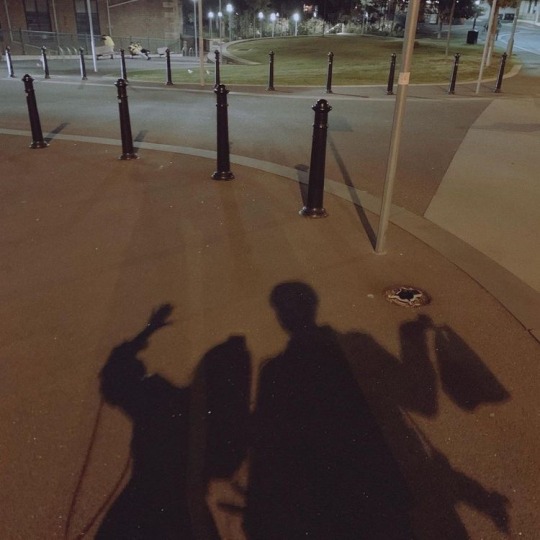
------------------------------------------------------------
I hope you enjoyed!! <3
Ik this is all over the place- but I actually had fun writing this.
For the people who asked to be tagged in a oliver otto x reader post: @y4sm1nsstuff @animesimp3456 @hunterluvr
366 notes
·
View notes
Text
Ok Ik that I may be out of place here but there should be at least one Oliver otto x reader fanfic or at least headcannons like have you not seen this man he’s so pretty, and if I can actually write something that’s not like texting I would write headcannons or one shorts about him my self but I don’t have the mindset to do that yet. So plz if anyone can plz write for him he needs love too😭😭❤️❤️
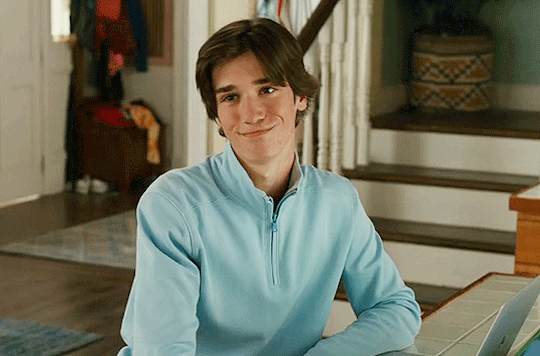
181 notes
·
View notes
Text
Yandere! Alicent x Yandere! Rhaenyra x Reader x Yandere! Criston
Part 2 (There will probably be a 3rd)
As the years went by it’s be a lie to say it was all smooth sailing. Though in the present you lived a more than comparable life. Between the lavish gowns of emerald green and ruby red. All gifts from Alicent and Rhaenyra, often they loved to personally dress you in. And a large chamber right between theirs. That you and Ser Cole often shared.
When Alicent and Viserys married, you ended up spending more time with Rhaenyra. As Alicent became more busy with matters of the kingdom, that concerned the young Queen. As much as you tried to mediate the tension between the two. It pushed you further into Criston’s arms. Not that he minded, using the situation to his benefit. Often you spent time with him, especially during meals. He tried his hardest not too bad mouth Rhaenrya in front of you. After she rejected his plan of the three of you running away together.
Little did you know you are a big chunk of what caused these tensions. As a married woman, Alicent was not permitted to spend as much time with you. Always in the corner of her eyes, she saw Rhaenrya you around without her. She and Ser Cole agreed that you were getting too far away. More and more often you started being called to the Queen’s champers. With Alicent’s reasons stemming from only liking the way, you brewed her tea. To help her dress for the day. During these times in her chambers, she’d send all the other servants away and Ser Cole would be the only guard present.
The ever going rift between the three disheartened you. They were really the only people in the castle that made your stay enjoyable. But the issues they had with one another were things you couldn’t remedy from your perspective. You were growing ever aware of how close by the Queen, Princess, and Knight kept you. Not you minded, as odd as the behaviors struck you at time.
They made you feel important, more than a mere Lady could ever dream of. But it also made you afraid, if you lost favor between them it could very well be a factor. In when your maidenhood would end and you would have to wed. If you no longer seemed to wield influence to your family or proximity to the throne.
It seemed like one day the problems between Rhaenrya, Alicent, and Cristion came to a full stop. Much to your confusion, one day the two women were icy towards each other. And the next you all walked the Red Keep arm in arm. With Alicent on your left, Rhaenrya on the right, while Cristion followed closely.
What you didn’t know is that Rhaenrya overheard a conversation between her father, your's, and Otto Hightower. She was simply going to speak with her father at another time till your name was mentioned. She already had a strong dislike of her father’s hand. But his suggestion made her want to feed him to Syrax as a mid-day snack. He was trying to convince them to betrothed you to his son. Her only friend left under the control of that man. She was convinced that you’d be treated terribly, so much so that she immediately went to tell Alicent.
When Alicent heard the news she felt a flurry of emotions. You were one of the only things untouched by her father. But in a sense, you’d be closer to her. But what if your marriage made you as unhappy as she was? Rhaenrya put a comforting hand on her old friend’s shoulder. An olive branch, Alicent realized, that you would be soon be married off. If not to her brother then some other lord. That would surely keep you away from her, and Alicent could not stand this, she wouldn’t.
Ser Criston was then brought into the conversation. She was aware that he, she, and Rhaenrya felt strongly about you. And that Criston and Rhaenrya had spent some ‘time’ together. Alicent never held any of those feelings for her guard, or men in general. But she felt a growing need for you. Rhaenrya devised a bold plan to keep you with them. That Ser Cole would ‘convince’ your suitors or betrothed to change their mind. While Alicent convinced the King to allow Criston to marry. In particular, marry you. And you would continue to live in the castle between the three of them.
Criston could almost not believe what he was hearing. That he could continue to be a knight but have you forever. Granted he knew that he wasn’t the only one between the Queen and Princess. But you would be his to love, worship, protect, sire children with. All he had to do was get his hands a little dirty, but Criston was sure the mother would forgive him. After all, it was out of duty and protection.
#hotd#alicent hightower#ser criston cole#rhaenrya targaryen#yandere rhaenyra x reader#yandere alicent Hightower x reader#yandere house of the dragon#yandere criston cole#alicent is a lesbian
138 notes
·
View notes
Text
Oliver otto x reader pt.2💕
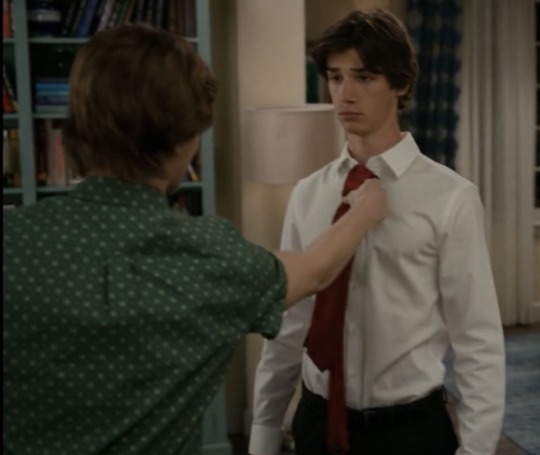
a/n: sorry for the late update but enjoy pt2 i might do another one for pt3, let the story begin
-Y/N pov-
oliver looked at me with a questioned look “hm? is something wrong” he said, i looked at him in the eyes and said, “ i think i love you.”
-olivers pov-
i was surprised that my crush and best friend confessed her feeling for me, i looked at her and said” i like you to” it felt good to get it out there “omg i was so scared of what you were going to say” she said with a relived face “you wanna be my girlfriend?” “yes ofc i will!” i felt so good and happy” so you want to go on a date with me tomorrow? i will have something planned for it” “ofc i will” i smiled and looked at her” well its 8:33pm right now you should head home and get sleep” “ok i will” and out of nowhere she kissed me on the cheek
“remember to text me when you get home so i know your safe” i said making sure she heard me right”ok i will sweet dreams!”
-Y/N pov-
after i got home i changed into my pj’s and texted oliver i was home.
-what you wore to bed-

after i got my pjs on i turned on the tv and fell asleep to modern family(just pretend it cane out durning the time this came out)
a/n: i might make another one for there date but for now ima just post this one and please tell me how the story is! love ya pookies!
13 notes
·
View notes
Text
Alfred Molina characters I write for
I wanted to make a list of Alfred Molina characters I write for (for the moment) since I didn’t really do one and there was some previous confusion.
I’m currently looking for more requests since I’m running out.
MALE/GENDER NEUTRAL/TRANS/ENBY/FEMDOM/butch!FEM readers (SFW & NSFW - no multi-chapter fics)
In chronological order , *for gn and male reader/trans male reader only ** for male reader/trans male reader only.
(sorry for how long this is lol, just want to be clear I’ll write for all of these)
Link back to my masterlist x , rules here x
(1981 - Raiders of the Lost Ark) - Satipo
(1985 - Letter to Brezhnev) - Sergei
(1985 - Ladyhawke) - Cezar
(1987 - Prick Up Your Ears) - Kenneth Halliwell** (yes, but please read borlpcd )
(1991 - Screen One: Hancock) - Tony Hancock
(1991 - American Friends) - Oliver Syme
(1993 - When Pigs Fly) - Marty
(1995 - Species) - Dr. Stephen Arden
(1995 - The Steal) - Cliff
(1995 - Hideaway) - Dr. Jonas Nyebern
(1995 - Nervous Energy) - Ira Moss**
(1996 - Mojave Moon) - Sal
(1997 - Anna Karenina) - Konstantin Dmitrievich Levin
(1997 - Boogie Nights) - Rahad Jackson*
(1997 - A Further Gesture) - Tulio* (desperately want to write for him but I haven’t found the movie anywhere :( )
(1997 - The Man Who Knew Too Little) - Boris “The Butcher” Blavasky*
(1998 - The Impostors) - Sir Jeremy Burtom*
(1999 - Dudley Do-Right) - Snidely K. 'Whip' Whiplash
(2000 - Chocolat) - Comte De Reynaud
(2001 - Texas Rangers) - John King Fisher*
(2002 - Frida) - Diego Rivera (AU) will post about this tomorrow*
(2002 - Undertaking Betty/Plots with a View) - Boris Plots
(2004 - Spider-Man 2) - Dr. Otto Octavius/Doctor Octopus
(2006 - Orchids) - Cliff
(2007 - The Moon and the Stars) - Davide Rieti**
(2007 - The Little Traitor) - Sergeant Stephen Dunlop*
(2008 - Nothing Like The Holidays) - Edy Rodriguez
(2009 - An Education) - Jack Mellor
(2009 - The Pink Panther 2) - Randall Pepperidge**
(2010 - Prince of Persia: Sands of Time) - Sheik Amar
(2010 - The Sorcerer’s Apprentice) - Maxim Horvath
(2011 - Abduction) - Frank Burton
(2012 - The Forger) - Everly Campbell**
(2012 - Loving Miss Hatto) - Barrie/William Barrington-Coupe
(2014 - Love is Strange) - George Garea**
(2014 - Swelter) - Doc**
(2020 - Promising Young Woman) - Jordan Green*
(2020 - The Water Man) - Jim Bussey*
(2021 - Spiderman: No Way Home) - goes without saying
I haven’t seen the new Cowboy show but I’ll do him too pretty sure (poor choice of words)
#alfred molina#doc ock#this is so long#lol#granted I want to write for a few more but I'm just not familiar enough with the characters#character list#please send requests <3#I have to write another one for his shows so there'll be another one - this was just very exhausting given his filmography
28 notes
·
View notes
Text
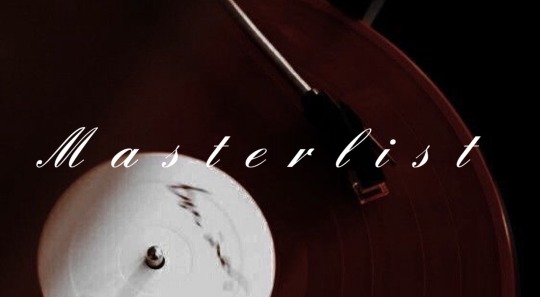
What I write:
♥️Female Reader
♥️fluff
♥️angst
♥️mild spice (not 100% comfortable with writing smut)
♥️Romantic
♥️Platonic
What I will NOT write:
TW (just incase)
🥀Pedophile related topics
🥀graphic/detailed Abuse
🥀Rape/Non con/Dub con
Contents ~
Harry Potter
Characters (you can request/I will write for):
Draco/Lucius/Narcissa Malfoy, Blaise Zabini, Pansy Parkinson, Severus Snape, Harry Potter, Hermione Granger, Ron Weasley, Oliver Wood, Remus Lupin, Sirius Black.
Works:
Fixed ~ Lucius Malfoy x Reader (fluff)
Top Gun (Maverick)
Characters (you can request/I will write for):
Iceman, Maverick, Goose, Slider, Phoenix, Bob, Rooster.
Works:
Home sweet home ~ Tom “Iceman” Kazansky x female reader (fluff)
Dad HC’s ~ Tom “Iceman” Kazansky x female reader (fluff)
Crazy for you ~ Tom “iceman” Kazaksky x female reader (fluff)
Marvel
Characters (you can request/I will write for):
Helmut Zemo, Bucky Barnes, The Winter Soldier, Loki, Natasha Romanov, Yelena Belova, Kate Bishop, Peggy/Captain Carter, Sam Wilson, Norman Osborne, Dr Otto Octavius.
Works:
DC TITIANS:
Characters (you can request/I will write for):
Richard “Dick” Grayson (Robin/Nightwing), Jason Todd (Robin/Red Hood), Rachel Roth, Cory Anders, Garfield Logan.
Works:
DC:
Characters (you can request/I will write for):
Clark Kent (superman), Bruce Wayne (Batman), Diana (Wonder Woman), Arthur Curry (Aquaman), The Joker, Harleen Quinzel (Harley Quinn).
Works:
5 notes
·
View notes
Photo

Ferdinand of Arragon
It may surprise some readers to treat the thirteenth century as the virtual close of the Middle Ages, an epoch which is usually placed in the latter half of the fifteenth century, in the age of Louis xi., Henry VII., and Ferdinand of Arragon. But the true spirit of Feudalism, the living soul of Catholicism, which together make up the compound type of society we call mediaeval, were, in point of fact, waning all through the thirteenth century. The hurly-burly of the fourteenth and the first half of the fifteenth centuries was merely one long and cruel death agony. Nay, the inner soul of Catholic Feudalism quite ended in the first generation of the thirteenth century — with St. Dominic, St. Francis, Innocent in., Philip Augustus, and Otto iv., Stephen Langton, and William, Earl Mareschal.
The truly characteristic period of mediaeval- ism is in the twelfth, rather than the thirteenth, century, the period covered by the first three Crusades from 1094, the date of the Council of Clermont, to 1192, when Coeur- de-Lion withdrew from the Holy Land. Or, if we put it a little wider in limits, we may date true mediaevalism from the rise of Hildebrand, about 1070, to the death of Innocent HI. in 1216, or just about a century and a half. St. Louis himself, as we read Joinville’s Memoirs, seems to us a man belated, born too late, and almost an anachronism in the second half of the thirteenth century sofia city tour.
We know that in the slow evolution of society the social brilliancy of a movement is seldom visible, and is almost never ripe for poetic and artistic idealisation until the energy of the movement itself is waning, or even it may be, is demonstrably spent. Shakespeare prolonged the Renascence of the fifteenth century, the Renascence of Leonardo and Raphael, into the seventeenth century, when Puritanism was in full career; and Shakespeare — it is deeply significant — died on the day when Oliver Cromwell entered college at Cambridge. And so, when Dante, in his Vision of 1300, saw the heights and the depths of Catholic Feudalism, he was looking back over great movements which were mighty forces a hundred years earlier. Just so, though the thirteenth century contained within its bosom the plainest proofs that the mediaeval world was ending, the flower, the brilliancy, the variety, the poetry, the soul of the mediaeval world, were never seen in so rich a glow as in the thirteenth century, its last great effort.
Thirteenth century as a whole
In a brief review of each of the dominant movements which give so profound a character to the thirteenth century as a whole, one begins naturally with the central movement of all — the Church. The thirteenth century was the era of the culmination, the over-straining, and then the shameful defeat of the claim made by the Church of Rome to a moral and spiritual autocracy in Christendom. There are at least five Popes in that one hundred years — Innocent HI., Gregory ix., Innocent iv., Gregory x., and Boniface vm.—whose characters impress us with a sense of power or of astounding desire of power, whose lives are romances and dreams, and whose careers are amongst the most instructive in history. He who would understand the Middle Ages must study from beginning to end the long and crowded Pontificate of Innocent HI. In genius, in commanding nature, in intensity of character, in universal energy, in aspiring designs, Innocent HI. has few rivals in the fourteenth centuries of the Roman Pontiffs, and few superiors in any age on any throne in the world.
His eighteen years of rule, from 1198 to 1216, were one long effort, for the moment successful, and in part deserving success, to enforce on the kings and peoples of Europe a higher morality, respect for the spiritual mission of the Church, and a sense of their common civilisation. We feel that he is truly a great man with a noble cause, when the Pope forces Philip Augustus to take back the wife he had so insolently cast off, when the Pope forces John to respect the rights of all his subjects, laymen or churchmen, when the Pope gives to England the best of her Primates, Stephen Langton, the principal author of our Great Charter, when the Pope accepts the potent enthusiasm of the New Friars and sends them forth on their mission of revivalism.
4 notes
·
View notes
Photo
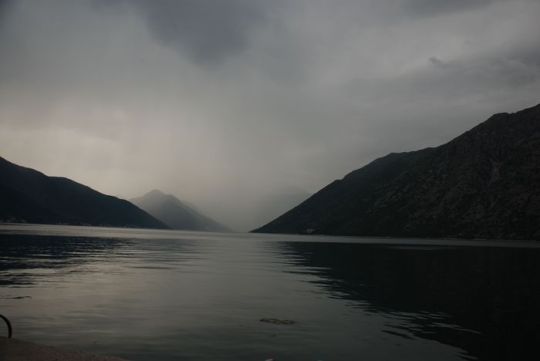
Ferdinand of Arragon
It may surprise some readers to treat the thirteenth century as the virtual close of the Middle Ages, an epoch which is usually placed in the latter half of the fifteenth century, in the age of Louis xi., Henry VII., and Ferdinand of Arragon. But the true spirit of Feudalism, the living soul of Catholicism, which together make up the compound type of society we call mediaeval, were, in point of fact, waning all through the thirteenth century. The hurly-burly of the fourteenth and the first half of the fifteenth centuries was merely one long and cruel death agony. Nay, the inner soul of Catholic Feudalism quite ended in the first generation of the thirteenth century — with St. Dominic, St. Francis, Innocent in., Philip Augustus, and Otto iv., Stephen Langton, and William, Earl Mareschal.
The truly characteristic period of mediaeval- ism is in the twelfth, rather than the thirteenth, century, the period covered by the first three Crusades from 1094, the date of the Council of Clermont, to 1192, when Coeur- de-Lion withdrew from the Holy Land. Or, if we put it a little wider in limits, we may date true mediaevalism from the rise of Hildebrand, about 1070, to the death of Innocent HI. in 1216, or just about a century and a half. St. Louis himself, as we read Joinville’s Memoirs, seems to us a man belated, born too late, and almost an anachronism in the second half of the thirteenth century sofia city tour.
We know that in the slow evolution of society the social brilliancy of a movement is seldom visible, and is almost never ripe for poetic and artistic idealisation until the energy of the movement itself is waning, or even it may be, is demonstrably spent. Shakespeare prolonged the Renascence of the fifteenth century, the Renascence of Leonardo and Raphael, into the seventeenth century, when Puritanism was in full career; and Shakespeare — it is deeply significant — died on the day when Oliver Cromwell entered college at Cambridge. And so, when Dante, in his Vision of 1300, saw the heights and the depths of Catholic Feudalism, he was looking back over great movements which were mighty forces a hundred years earlier. Just so, though the thirteenth century contained within its bosom the plainest proofs that the mediaeval world was ending, the flower, the brilliancy, the variety, the poetry, the soul of the mediaeval world, were never seen in so rich a glow as in the thirteenth century, its last great effort.
Thirteenth century as a whole
In a brief review of each of the dominant movements which give so profound a character to the thirteenth century as a whole, one begins naturally with the central movement of all — the Church. The thirteenth century was the era of the culmination, the over-straining, and then the shameful defeat of the claim made by the Church of Rome to a moral and spiritual autocracy in Christendom. There are at least five Popes in that one hundred years — Innocent HI., Gregory ix., Innocent iv., Gregory x., and Boniface vm.—whose characters impress us with a sense of power or of astounding desire of power, whose lives are romances and dreams, and whose careers are amongst the most instructive in history. He who would understand the Middle Ages must study from beginning to end the long and crowded Pontificate of Innocent HI. In genius, in commanding nature, in intensity of character, in universal energy, in aspiring designs, Innocent HI. has few rivals in the fourteenth centuries of the Roman Pontiffs, and few superiors in any age on any throne in the world.
His eighteen years of rule, from 1198 to 1216, were one long effort, for the moment successful, and in part deserving success, to enforce on the kings and peoples of Europe a higher morality, respect for the spiritual mission of the Church, and a sense of their common civilisation. We feel that he is truly a great man with a noble cause, when the Pope forces Philip Augustus to take back the wife he had so insolently cast off, when the Pope forces John to respect the rights of all his subjects, laymen or churchmen, when the Pope gives to England the best of her Primates, Stephen Langton, the principal author of our Great Charter, when the Pope accepts the potent enthusiasm of the New Friars and sends them forth on their mission of revivalism.
0 notes
Text
Good Looking - Pablo Gavi x Reader

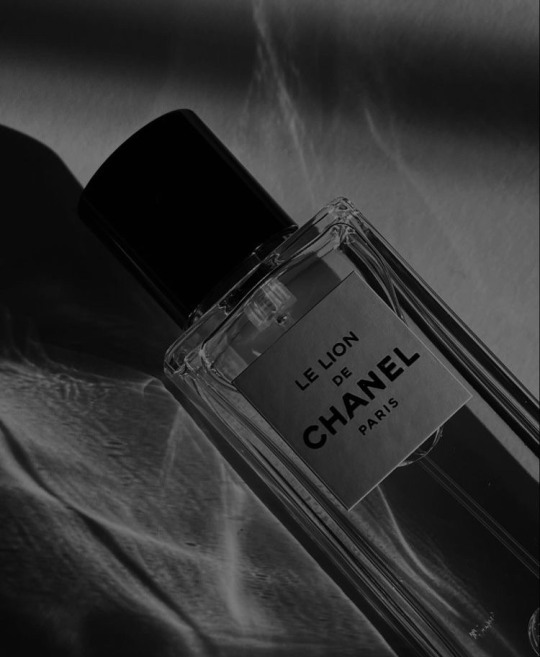

Bonjour bonjour tumblr ☺️
Thank you @anedpev for the song recommendation!!💕
I'm working on two MASSIVE posts. One Pablo Gavi x Reader and one is Oliver Otto x Reader so look out! But I'll be posting mini stories in between 😚
Song: Good Looking by Suki Waterhouse
This is REALLY short sorry. But I fucked up my leg and can't focus on writing very well so take this 😩
------------------------------------------------------------
The skyline falls as I try to make sense of it all
The paparazzi had an image of you and Pablo leaving one of your coffee shop dates. Sadly, lots of people were trying to insult you- and it hurt. You sobbed while reading one of the comments.
Pablo walked in after training, " amorrr? Amor!? " at first, his tone was happy. But the second time? Heart broken. You looked up, tears running down your soft face. " they hate me. " you said, voice breaking. Pablo ran to you and held you, repeating " no they don't.. "
Then you started getting texts from your friends asking about it, which made you cry more. You hated the attention. Gavi grabbed your phone and put it on his bedside table. " no more phone. You tried going to feel like the skyline is falling apart, so no more phone." he told you and you nodded, accepting the idea.
Gavi was exhausted. But he still stayed up till 2am doing things to distract you. You baked cookies, watched a movie, a puzzle, he did your nails and you two cuddled.
As soon as you got into bed, you fell asleep. All of your worries washed away. Pablo held you close by your waist, smiling into your hair before falling asleep himself.
I thought I'd uncovered your secrets, but turns out there's more

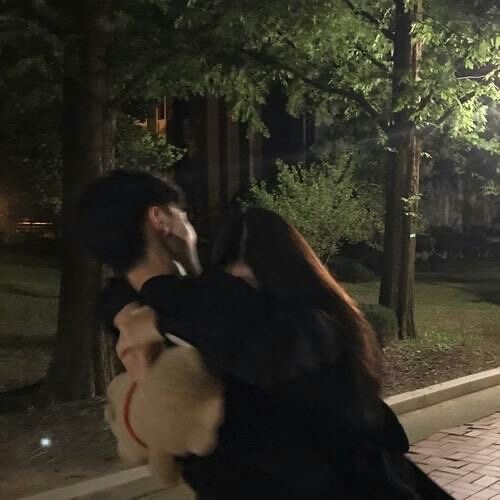

Successful Spain football player caught with (your job) y/n l/n!!
Was plastered on what seemed like every news company. All with different theorise about your relationship.
Y/n L/n caught with Pablo Gavi, new relationship?
Pablo Gavi is no longer on the market ladies, today is the day where 1,000s of girls mourn
Y/N L/N is no longer anybodys eye candy- only Gavis!!
And even more ridiculous titles...
Gavi was in training when the photos got leaked. But you were at home laughing your ass off, reading the titles and sending screenshots to Gavi. And as soon as he saw them, he laughed too and showed Pedri.
The truth was, you and Pablo have been dating for over two years. Recently, you've been sloppy with hiding from the paparazzi. But Gavi thought ' I'm going to marry here, they'll find out about her eventually.. ' when he saw someone taking a picture- he got to brag about his girl.
#pablo gavi#ily pablo gavi#pablo gavi x reader#pablo gavi x y/n#pablo gavi x you#gavi x reader#pablo x reader
111 notes
·
View notes
Photo
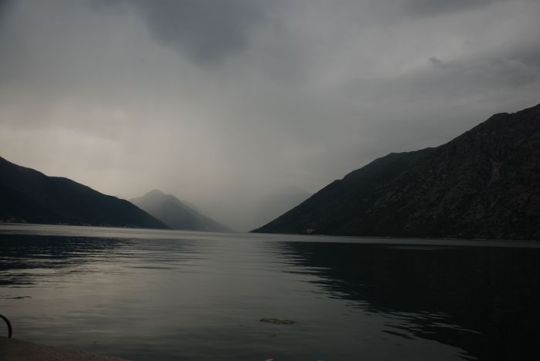
Ferdinand of Arragon
It may surprise some readers to treat the thirteenth century as the virtual close of the Middle Ages, an epoch which is usually placed in the latter half of the fifteenth century, in the age of Louis xi., Henry VII., and Ferdinand of Arragon. But the true spirit of Feudalism, the living soul of Catholicism, which together make up the compound type of society we call mediaeval, were, in point of fact, waning all through the thirteenth century. The hurly-burly of the fourteenth and the first half of the fifteenth centuries was merely one long and cruel death agony. Nay, the inner soul of Catholic Feudalism quite ended in the first generation of the thirteenth century — with St. Dominic, St. Francis, Innocent in., Philip Augustus, and Otto iv., Stephen Langton, and William, Earl Mareschal.
The truly characteristic period of mediaeval- ism is in the twelfth, rather than the thirteenth, century, the period covered by the first three Crusades from 1094, the date of the Council of Clermont, to 1192, when Coeur- de-Lion withdrew from the Holy Land. Or, if we put it a little wider in limits, we may date true mediaevalism from the rise of Hildebrand, about 1070, to the death of Innocent HI. in 1216, or just about a century and a half. St. Louis himself, as we read Joinville’s Memoirs, seems to us a man belated, born too late, and almost an anachronism in the second half of the thirteenth century sofia city tour.
We know that in the slow evolution of society the social brilliancy of a movement is seldom visible, and is almost never ripe for poetic and artistic idealisation until the energy of the movement itself is waning, or even it may be, is demonstrably spent. Shakespeare prolonged the Renascence of the fifteenth century, the Renascence of Leonardo and Raphael, into the seventeenth century, when Puritanism was in full career; and Shakespeare — it is deeply significant — died on the day when Oliver Cromwell entered college at Cambridge. And so, when Dante, in his Vision of 1300, saw the heights and the depths of Catholic Feudalism, he was looking back over great movements which were mighty forces a hundred years earlier. Just so, though the thirteenth century contained within its bosom the plainest proofs that the mediaeval world was ending, the flower, the brilliancy, the variety, the poetry, the soul of the mediaeval world, were never seen in so rich a glow as in the thirteenth century, its last great effort.
Thirteenth century as a whole
In a brief review of each of the dominant movements which give so profound a character to the thirteenth century as a whole, one begins naturally with the central movement of all — the Church. The thirteenth century was the era of the culmination, the over-straining, and then the shameful defeat of the claim made by the Church of Rome to a moral and spiritual autocracy in Christendom. There are at least five Popes in that one hundred years — Innocent HI., Gregory ix., Innocent iv., Gregory x., and Boniface vm.—whose characters impress us with a sense of power or of astounding desire of power, whose lives are romances and dreams, and whose careers are amongst the most instructive in history. He who would understand the Middle Ages must study from beginning to end the long and crowded Pontificate of Innocent HI. In genius, in commanding nature, in intensity of character, in universal energy, in aspiring designs, Innocent HI. has few rivals in the fourteenth centuries of the Roman Pontiffs, and few superiors in any age on any throne in the world.
His eighteen years of rule, from 1198 to 1216, were one long effort, for the moment successful, and in part deserving success, to enforce on the kings and peoples of Europe a higher morality, respect for the spiritual mission of the Church, and a sense of their common civilisation. We feel that he is truly a great man with a noble cause, when the Pope forces Philip Augustus to take back the wife he had so insolently cast off, when the Pope forces John to respect the rights of all his subjects, laymen or churchmen, when the Pope gives to England the best of her Primates, Stephen Langton, the principal author of our Great Charter, when the Pope accepts the potent enthusiasm of the New Friars and sends them forth on their mission of revivalism.
1 note
·
View note
Photo
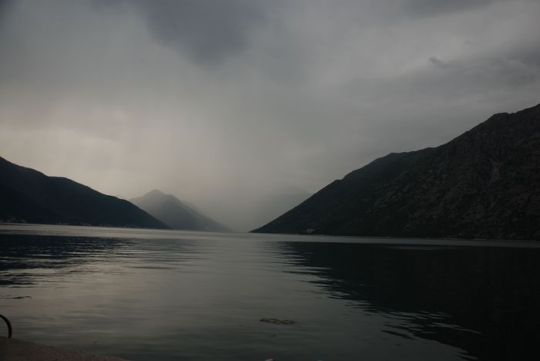
Ferdinand of Arragon
It may surprise some readers to treat the thirteenth century as the virtual close of the Middle Ages, an epoch which is usually placed in the latter half of the fifteenth century, in the age of Louis xi., Henry VII., and Ferdinand of Arragon. But the true spirit of Feudalism, the living soul of Catholicism, which together make up the compound type of society we call mediaeval, were, in point of fact, waning all through the thirteenth century. The hurly-burly of the fourteenth and the first half of the fifteenth centuries was merely one long and cruel death agony. Nay, the inner soul of Catholic Feudalism quite ended in the first generation of the thirteenth century — with St. Dominic, St. Francis, Innocent in., Philip Augustus, and Otto iv., Stephen Langton, and William, Earl Mareschal.
The truly characteristic period of mediaeval- ism is in the twelfth, rather than the thirteenth, century, the period covered by the first three Crusades from 1094, the date of the Council of Clermont, to 1192, when Coeur- de-Lion withdrew from the Holy Land. Or, if we put it a little wider in limits, we may date true mediaevalism from the rise of Hildebrand, about 1070, to the death of Innocent HI. in 1216, or just about a century and a half. St. Louis himself, as we read Joinville’s Memoirs, seems to us a man belated, born too late, and almost an anachronism in the second half of the thirteenth century sofia city tour.
We know that in the slow evolution of society the social brilliancy of a movement is seldom visible, and is almost never ripe for poetic and artistic idealisation until the energy of the movement itself is waning, or even it may be, is demonstrably spent. Shakespeare prolonged the Renascence of the fifteenth century, the Renascence of Leonardo and Raphael, into the seventeenth century, when Puritanism was in full career; and Shakespeare — it is deeply significant — died on the day when Oliver Cromwell entered college at Cambridge. And so, when Dante, in his Vision of 1300, saw the heights and the depths of Catholic Feudalism, he was looking back over great movements which were mighty forces a hundred years earlier. Just so, though the thirteenth century contained within its bosom the plainest proofs that the mediaeval world was ending, the flower, the brilliancy, the variety, the poetry, the soul of the mediaeval world, were never seen in so rich a glow as in the thirteenth century, its last great effort.
Thirteenth century as a whole
In a brief review of each of the dominant movements which give so profound a character to the thirteenth century as a whole, one begins naturally with the central movement of all — the Church. The thirteenth century was the era of the culmination, the over-straining, and then the shameful defeat of the claim made by the Church of Rome to a moral and spiritual autocracy in Christendom. There are at least five Popes in that one hundred years — Innocent HI., Gregory ix., Innocent iv., Gregory x., and Boniface vm.—whose characters impress us with a sense of power or of astounding desire of power, whose lives are romances and dreams, and whose careers are amongst the most instructive in history. He who would understand the Middle Ages must study from beginning to end the long and crowded Pontificate of Innocent HI. In genius, in commanding nature, in intensity of character, in universal energy, in aspiring designs, Innocent HI. has few rivals in the fourteenth centuries of the Roman Pontiffs, and few superiors in any age on any throne in the world.
His eighteen years of rule, from 1198 to 1216, were one long effort, for the moment successful, and in part deserving success, to enforce on the kings and peoples of Europe a higher morality, respect for the spiritual mission of the Church, and a sense of their common civilisation. We feel that he is truly a great man with a noble cause, when the Pope forces Philip Augustus to take back the wife he had so insolently cast off, when the Pope forces John to respect the rights of all his subjects, laymen or churchmen, when the Pope gives to England the best of her Primates, Stephen Langton, the principal author of our Great Charter, when the Pope accepts the potent enthusiasm of the New Friars and sends them forth on their mission of revivalism.
0 notes
Photo
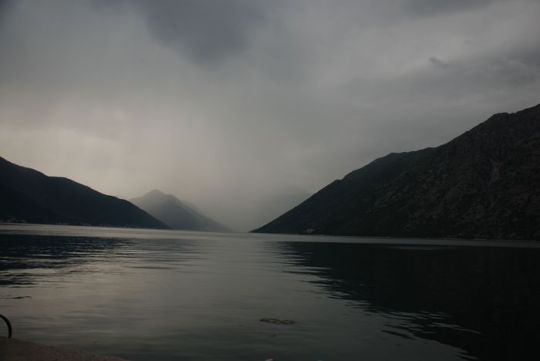
Ferdinand of Arragon
It may surprise some readers to treat the thirteenth century as the virtual close of the Middle Ages, an epoch which is usually placed in the latter half of the fifteenth century, in the age of Louis xi., Henry VII., and Ferdinand of Arragon. But the true spirit of Feudalism, the living soul of Catholicism, which together make up the compound type of society we call mediaeval, were, in point of fact, waning all through the thirteenth century. The hurly-burly of the fourteenth and the first half of the fifteenth centuries was merely one long and cruel death agony. Nay, the inner soul of Catholic Feudalism quite ended in the first generation of the thirteenth century — with St. Dominic, St. Francis, Innocent in., Philip Augustus, and Otto iv., Stephen Langton, and William, Earl Mareschal.
The truly characteristic period of mediaeval- ism is in the twelfth, rather than the thirteenth, century, the period covered by the first three Crusades from 1094, the date of the Council of Clermont, to 1192, when Coeur- de-Lion withdrew from the Holy Land. Or, if we put it a little wider in limits, we may date true mediaevalism from the rise of Hildebrand, about 1070, to the death of Innocent HI. in 1216, or just about a century and a half. St. Louis himself, as we read Joinville’s Memoirs, seems to us a man belated, born too late, and almost an anachronism in the second half of the thirteenth century sofia city tour.
We know that in the slow evolution of society the social brilliancy of a movement is seldom visible, and is almost never ripe for poetic and artistic idealisation until the energy of the movement itself is waning, or even it may be, is demonstrably spent. Shakespeare prolonged the Renascence of the fifteenth century, the Renascence of Leonardo and Raphael, into the seventeenth century, when Puritanism was in full career; and Shakespeare — it is deeply significant — died on the day when Oliver Cromwell entered college at Cambridge. And so, when Dante, in his Vision of 1300, saw the heights and the depths of Catholic Feudalism, he was looking back over great movements which were mighty forces a hundred years earlier. Just so, though the thirteenth century contained within its bosom the plainest proofs that the mediaeval world was ending, the flower, the brilliancy, the variety, the poetry, the soul of the mediaeval world, were never seen in so rich a glow as in the thirteenth century, its last great effort.
Thirteenth century as a whole
In a brief review of each of the dominant movements which give so profound a character to the thirteenth century as a whole, one begins naturally with the central movement of all — the Church. The thirteenth century was the era of the culmination, the over-straining, and then the shameful defeat of the claim made by the Church of Rome to a moral and spiritual autocracy in Christendom. There are at least five Popes in that one hundred years — Innocent HI., Gregory ix., Innocent iv., Gregory x., and Boniface vm.—whose characters impress us with a sense of power or of astounding desire of power, whose lives are romances and dreams, and whose careers are amongst the most instructive in history. He who would understand the Middle Ages must study from beginning to end the long and crowded Pontificate of Innocent HI. In genius, in commanding nature, in intensity of character, in universal energy, in aspiring designs, Innocent HI. has few rivals in the fourteenth centuries of the Roman Pontiffs, and few superiors in any age on any throne in the world.
His eighteen years of rule, from 1198 to 1216, were one long effort, for the moment successful, and in part deserving success, to enforce on the kings and peoples of Europe a higher morality, respect for the spiritual mission of the Church, and a sense of their common civilisation. We feel that he is truly a great man with a noble cause, when the Pope forces Philip Augustus to take back the wife he had so insolently cast off, when the Pope forces John to respect the rights of all his subjects, laymen or churchmen, when the Pope gives to England the best of her Primates, Stephen Langton, the principal author of our Great Charter, when the Pope accepts the potent enthusiasm of the New Friars and sends them forth on their mission of revivalism.
0 notes
Photo

Ferdinand of Arragon
It may surprise some readers to treat the thirteenth century as the virtual close of the Middle Ages, an epoch which is usually placed in the latter half of the fifteenth century, in the age of Louis xi., Henry VII., and Ferdinand of Arragon. But the true spirit of Feudalism, the living soul of Catholicism, which together make up the compound type of society we call mediaeval, were, in point of fact, waning all through the thirteenth century. The hurly-burly of the fourteenth and the first half of the fifteenth centuries was merely one long and cruel death agony. Nay, the inner soul of Catholic Feudalism quite ended in the first generation of the thirteenth century — with St. Dominic, St. Francis, Innocent in., Philip Augustus, and Otto iv., Stephen Langton, and William, Earl Mareschal.
The truly characteristic period of mediaeval- ism is in the twelfth, rather than the thirteenth, century, the period covered by the first three Crusades from 1094, the date of the Council of Clermont, to 1192, when Coeur- de-Lion withdrew from the Holy Land. Or, if we put it a little wider in limits, we may date true mediaevalism from the rise of Hildebrand, about 1070, to the death of Innocent HI. in 1216, or just about a century and a half. St. Louis himself, as we read Joinville’s Memoirs, seems to us a man belated, born too late, and almost an anachronism in the second half of the thirteenth century sofia city tour.
We know that in the slow evolution of society the social brilliancy of a movement is seldom visible, and is almost never ripe for poetic and artistic idealisation until the energy of the movement itself is waning, or even it may be, is demonstrably spent. Shakespeare prolonged the Renascence of the fifteenth century, the Renascence of Leonardo and Raphael, into the seventeenth century, when Puritanism was in full career; and Shakespeare — it is deeply significant — died on the day when Oliver Cromwell entered college at Cambridge. And so, when Dante, in his Vision of 1300, saw the heights and the depths of Catholic Feudalism, he was looking back over great movements which were mighty forces a hundred years earlier. Just so, though the thirteenth century contained within its bosom the plainest proofs that the mediaeval world was ending, the flower, the brilliancy, the variety, the poetry, the soul of the mediaeval world, were never seen in so rich a glow as in the thirteenth century, its last great effort.
Thirteenth century as a whole
In a brief review of each of the dominant movements which give so profound a character to the thirteenth century as a whole, one begins naturally with the central movement of all — the Church. The thirteenth century was the era of the culmination, the over-straining, and then the shameful defeat of the claim made by the Church of Rome to a moral and spiritual autocracy in Christendom. There are at least five Popes in that one hundred years — Innocent HI., Gregory ix., Innocent iv., Gregory x., and Boniface vm.—whose characters impress us with a sense of power or of astounding desire of power, whose lives are romances and dreams, and whose careers are amongst the most instructive in history. He who would understand the Middle Ages must study from beginning to end the long and crowded Pontificate of Innocent HI. In genius, in commanding nature, in intensity of character, in universal energy, in aspiring designs, Innocent HI. has few rivals in the fourteenth centuries of the Roman Pontiffs, and few superiors in any age on any throne in the world.
His eighteen years of rule, from 1198 to 1216, were one long effort, for the moment successful, and in part deserving success, to enforce on the kings and peoples of Europe a higher morality, respect for the spiritual mission of the Church, and a sense of their common civilisation. We feel that he is truly a great man with a noble cause, when the Pope forces Philip Augustus to take back the wife he had so insolently cast off, when the Pope forces John to respect the rights of all his subjects, laymen or churchmen, when the Pope gives to England the best of her Primates, Stephen Langton, the principal author of our Great Charter, when the Pope accepts the potent enthusiasm of the New Friars and sends them forth on their mission of revivalism.
0 notes
Text
Oliver Otto X reader♥️
a/n: this is my first story ever so if there are any typos i am sorry! also there maybe some little delays on parts! the story begin!!
________________________________________
Y/n POV-
Me and Oliver have been friend’s for over 3 years, and its hard to keep my feeling away for so long, i keep telling myself i should tell him but i don’t know how he feels back. My thoughts get interrupted by my cellphone ringing
*on the call* Y=you O= Oliver
O- Hey y/n could you help me with a project?
Y- yeah sure when?
O- right now if its ok
Y- yeah i am omw right now
O- awesome thanks bye
Y-Bye
after Oliver hung up i started heading out the door, bag in hand and started walking to his house, oh i forgot to mention me and Oliver are neighbors so it was an easy walk.I knocked on the door and Oliver answered,”Hey y/n” Oliver said “hey Oliver”i said smiling, i followed him into his room and started to help him with his project. after a minute i out down my pencil and turned to look at Oliver, “Oliver i have something to say.”
i am getting tired ill post part 2 tmr lmk if y’all are liking this story!!
7 notes
·
View notes
Photo

Ferdinand of Arragon
It may surprise some readers to treat the thirteenth century as the virtual close of the Middle Ages, an epoch which is usually placed in the latter half of the fifteenth century, in the age of Louis xi., Henry VII., and Ferdinand of Arragon. But the true spirit of Feudalism, the living soul of Catholicism, which together make up the compound type of society we call mediaeval, were, in point of fact, waning all through the thirteenth century. The hurly-burly of the fourteenth and the first half of the fifteenth centuries was merely one long and cruel death agony. Nay, the inner soul of Catholic Feudalism quite ended in the first generation of the thirteenth century — with St. Dominic, St. Francis, Innocent in., Philip Augustus, and Otto iv., Stephen Langton, and William, Earl Mareschal.
The truly characteristic period of mediaeval- ism is in the twelfth, rather than the thirteenth, century, the period covered by the first three Crusades from 1094, the date of the Council of Clermont, to 1192, when Coeur- de-Lion withdrew from the Holy Land. Or, if we put it a little wider in limits, we may date true mediaevalism from the rise of Hildebrand, about 1070, to the death of Innocent HI. in 1216, or just about a century and a half. St. Louis himself, as we read Joinville’s Memoirs, seems to us a man belated, born too late, and almost an anachronism in the second half of the thirteenth century sofia city tour.
We know that in the slow evolution of society the social brilliancy of a movement is seldom visible, and is almost never ripe for poetic and artistic idealisation until the energy of the movement itself is waning, or even it may be, is demonstrably spent. Shakespeare prolonged the Renascence of the fifteenth century, the Renascence of Leonardo and Raphael, into the seventeenth century, when Puritanism was in full career; and Shakespeare — it is deeply significant — died on the day when Oliver Cromwell entered college at Cambridge. And so, when Dante, in his Vision of 1300, saw the heights and the depths of Catholic Feudalism, he was looking back over great movements which were mighty forces a hundred years earlier. Just so, though the thirteenth century contained within its bosom the plainest proofs that the mediaeval world was ending, the flower, the brilliancy, the variety, the poetry, the soul of the mediaeval world, were never seen in so rich a glow as in the thirteenth century, its last great effort.
Thirteenth century as a whole
In a brief review of each of the dominant movements which give so profound a character to the thirteenth century as a whole, one begins naturally with the central movement of all — the Church. The thirteenth century was the era of the culmination, the over-straining, and then the shameful defeat of the claim made by the Church of Rome to a moral and spiritual autocracy in Christendom. There are at least five Popes in that one hundred years — Innocent HI., Gregory ix., Innocent iv., Gregory x., and Boniface vm.—whose characters impress us with a sense of power or of astounding desire of power, whose lives are romances and dreams, and whose careers are amongst the most instructive in history. He who would understand the Middle Ages must study from beginning to end the long and crowded Pontificate of Innocent HI. In genius, in commanding nature, in intensity of character, in universal energy, in aspiring designs, Innocent HI. has few rivals in the fourteenth centuries of the Roman Pontiffs, and few superiors in any age on any throne in the world.
His eighteen years of rule, from 1198 to 1216, were one long effort, for the moment successful, and in part deserving success, to enforce on the kings and peoples of Europe a higher morality, respect for the spiritual mission of the Church, and a sense of their common civilisation. We feel that he is truly a great man with a noble cause, when the Pope forces Philip Augustus to take back the wife he had so insolently cast off, when the Pope forces John to respect the rights of all his subjects, laymen or churchmen, when the Pope gives to England the best of her Primates, Stephen Langton, the principal author of our Great Charter, when the Pope accepts the potent enthusiasm of the New Friars and sends them forth on their mission of revivalism.
0 notes
Photo
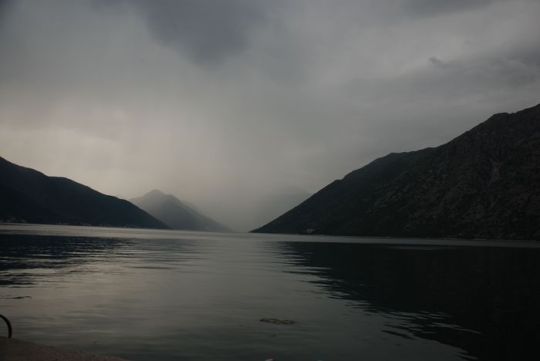
Ferdinand of Arragon
It may surprise some readers to treat the thirteenth century as the virtual close of the Middle Ages, an epoch which is usually placed in the latter half of the fifteenth century, in the age of Louis xi., Henry VII., and Ferdinand of Arragon. But the true spirit of Feudalism, the living soul of Catholicism, which together make up the compound type of society we call mediaeval, were, in point of fact, waning all through the thirteenth century. The hurly-burly of the fourteenth and the first half of the fifteenth centuries was merely one long and cruel death agony. Nay, the inner soul of Catholic Feudalism quite ended in the first generation of the thirteenth century — with St. Dominic, St. Francis, Innocent in., Philip Augustus, and Otto iv., Stephen Langton, and William, Earl Mareschal.
The truly characteristic period of mediaeval- ism is in the twelfth, rather than the thirteenth, century, the period covered by the first three Crusades from 1094, the date of the Council of Clermont, to 1192, when Coeur- de-Lion withdrew from the Holy Land. Or, if we put it a little wider in limits, we may date true mediaevalism from the rise of Hildebrand, about 1070, to the death of Innocent HI. in 1216, or just about a century and a half. St. Louis himself, as we read Joinville’s Memoirs, seems to us a man belated, born too late, and almost an anachronism in the second half of the thirteenth century sofia city tour.
We know that in the slow evolution of society the social brilliancy of a movement is seldom visible, and is almost never ripe for poetic and artistic idealisation until the energy of the movement itself is waning, or even it may be, is demonstrably spent. Shakespeare prolonged the Renascence of the fifteenth century, the Renascence of Leonardo and Raphael, into the seventeenth century, when Puritanism was in full career; and Shakespeare — it is deeply significant — died on the day when Oliver Cromwell entered college at Cambridge. And so, when Dante, in his Vision of 1300, saw the heights and the depths of Catholic Feudalism, he was looking back over great movements which were mighty forces a hundred years earlier. Just so, though the thirteenth century contained within its bosom the plainest proofs that the mediaeval world was ending, the flower, the brilliancy, the variety, the poetry, the soul of the mediaeval world, were never seen in so rich a glow as in the thirteenth century, its last great effort.
Thirteenth century as a whole
In a brief review of each of the dominant movements which give so profound a character to the thirteenth century as a whole, one begins naturally with the central movement of all — the Church. The thirteenth century was the era of the culmination, the over-straining, and then the shameful defeat of the claim made by the Church of Rome to a moral and spiritual autocracy in Christendom. There are at least five Popes in that one hundred years — Innocent HI., Gregory ix., Innocent iv., Gregory x., and Boniface vm.—whose characters impress us with a sense of power or of astounding desire of power, whose lives are romances and dreams, and whose careers are amongst the most instructive in history. He who would understand the Middle Ages must study from beginning to end the long and crowded Pontificate of Innocent HI. In genius, in commanding nature, in intensity of character, in universal energy, in aspiring designs, Innocent HI. has few rivals in the fourteenth centuries of the Roman Pontiffs, and few superiors in any age on any throne in the world.
His eighteen years of rule, from 1198 to 1216, were one long effort, for the moment successful, and in part deserving success, to enforce on the kings and peoples of Europe a higher morality, respect for the spiritual mission of the Church, and a sense of their common civilisation. We feel that he is truly a great man with a noble cause, when the Pope forces Philip Augustus to take back the wife he had so insolently cast off, when the Pope forces John to respect the rights of all his subjects, laymen or churchmen, when the Pope gives to England the best of her Primates, Stephen Langton, the principal author of our Great Charter, when the Pope accepts the potent enthusiasm of the New Friars and sends them forth on their mission of revivalism.
0 notes